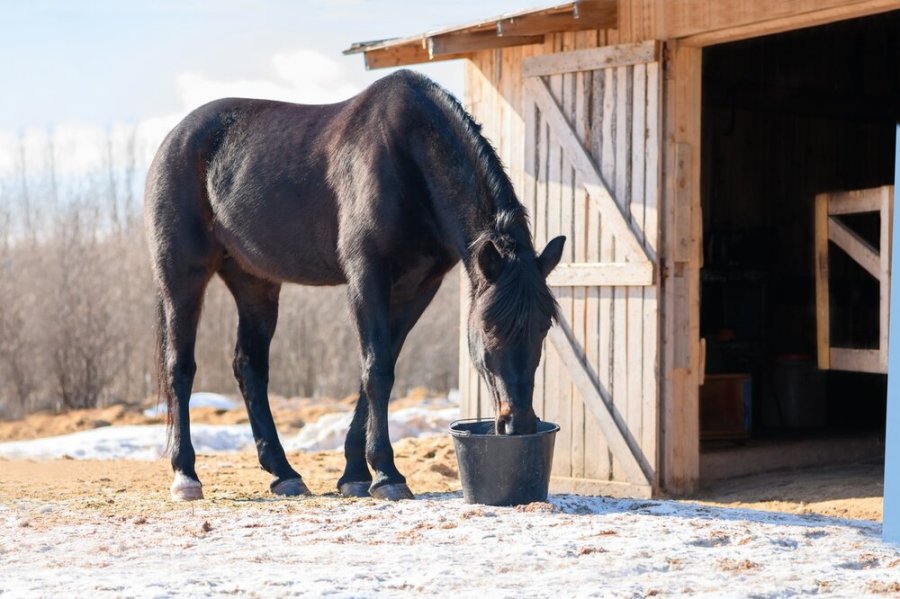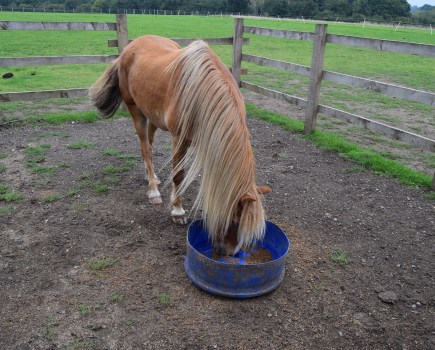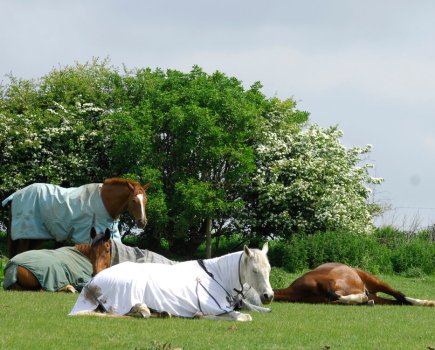Many of us will be feeling the pinch in the current economic climate and will be wanting to make savings wherever possible, and there are ways you cut back on the cost of horse ownership without compromising on the quality of care you provide.
Your Horse teamed up with the British Equestrian Trade Association (BETA) and its trade member Baileys Horse Feeds to help share some tips from the trade on how you may be able to save money on your horse’s feed this winter, while still providing them with the very best care and diet that meets their needs.
Plan ahead for veterans and poor-doers
If you have an older horse or pony, who struggles with poor dentition and chewing hay or haylage over winter, make sure you have a good forage replacement regime in place well in advance.
This will help to keep their fibre intake high and encourage weight maintenance as the grass starts to decline. Waiting to introduce this until they have already started to lose weight will make it that much harder to get their condition back up when the weather is colder. Don’t forget that in winter they are more likely to burn their calories to keep themselves warm.
The same applies to the poor-doer. The sooner you act, the less likely you will have to resort to feeding vast volumes of bucket feed to promote weight gain, which will cost you more money in the long run.
Body condition score regularly
Monitor your horse’s body condition regularly through the winter months using body condition scoring, weigh-taping and taking regular photos.
This will help you to determine if they are losing or gaining weight so you can adjust the diet as needed, preventing over feeding.
Remember you can contact feed company helplines for more advice and guidance on this.
Weigh hard feed
Most feed manufacturers will give quantity recommendations on the feed sacks, which are the minimum amounts that need to be fed for the horse’s size and workload.
Recommended quantities will typically be given in kilograms or pounds, rather than ‘scoops’, as scoop size can vary so much. Weighing what your scoop will hold of each of your feeds will help you feed the correct amount. Not only does this save you money but, more importantly, it ensures that your horse is receiving a balanced diet.
Weigh forage
As well as weighing your feed, weighing hay or haylage will help reduce waste. This is particularly useful for the good-doer whose calorie intake needs monitoring.
For those horses and ponies who struggle with maintaining condition, it can help ensure they are meeting minimum fibre requirements to support digestive health and efficiency.
Don’t waste forage
Feeding forage in a net or hay bar may be preferable to the floor, to avoid wastage and prevent forage being trodden into your horse’s bed.
This can also stretch out the time it takes your horse to eat, keeping them entertained for longer in their stable and stopping them from eating too quickly.
Try cafeteria-style feeding too — it’s really effective for making forage last, preventing boredom, and saving money in the long run.
Check before adding supplements
If you are feeding the recommended amount of concentrate feed for weight and workload, it shouldn’t be necessary to top up with additional licks, powders and pellets. If you’re unsure, check with the feed manufacturer to see that what you are already feeding meet your needs.
Cut down on chaff
Keep the amount of chaff or chop you feed to a minimum. If a horse does not bolt their feed or have specific needs, then chops are not essential, particularly when plenty of hay/haylage is being provided.
Beware false economy
Cheaper feeds can be a false economy as they often have fewer quality ingredients and are lower in calories, meaning you need to feed more to keep your horse in the condition you want.
Keep meal sizes manageable
Portion control is important. Over feeding results in your horse not being able to digest what is in the bucket, leading to an expensive muck heap, or worse, digestive upset and potentially fatal problems like colic.
If you can’t divide your horse’s total feed ration into enough small meals each day to keep them under the equivalent of 0.5kg per 100kg of bodyweight per meal, talk to a feed company helpline to explore your options.









